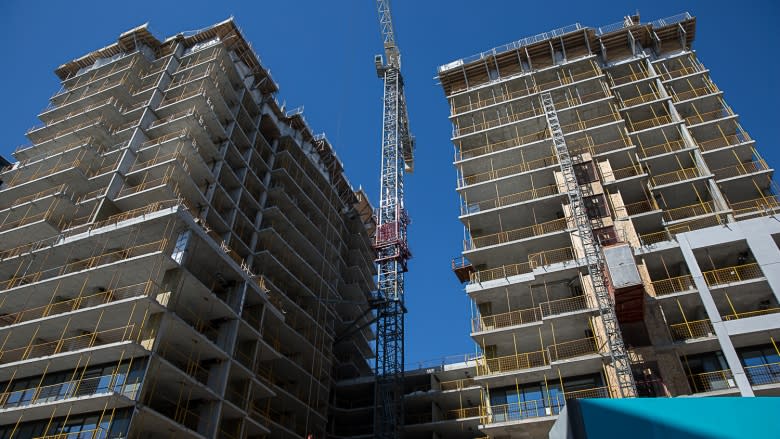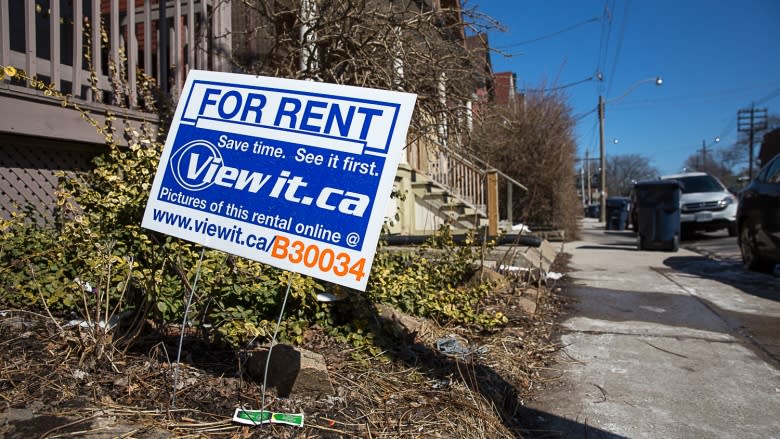Ontario housing minister defends new rent control rules in face of report on negative impact
Ontario's housing minister defended government measures to cap rent in the province even though a new report says at least 1,000 planned rental units have been cancelled or converted to condos since those rules were implemented in April.
Peter Milczyn says he is keeping a close eye on the housing market now that the provincial government has implemented its Fair Housing Plan. Under the plan, the province extended rent control to all units in Ontario, including those built after 1991.
Milczyn said the government is also releasing provincially owned surplus lands to free space for development of purpose-built rentals.
"The status quo of the previous rental control program wasn't generating very many rental units either," Milczyn told Metro Morning on Tuesday.
"So I'm listening to the industry. We're monitoring what's going on, but the reality is, over a number of decades, about six per cent of the housing built was purpose-built rentals."
In a report released on Monday, the Federation of Rental-Housing Providers of Ontario says the province's Fair Housing Plan has negatively impacted the province's rental housing supply.
Federation president Jim Murphy said Ontario needs 34,000 rental units built a year to keep pace with demand and it is currently falling more than 6,200 units short each year.
According to Canada Mortgage and Housing Corporation data in the report, vacancy rates in the province have already fallen to 2.1 per cent across the province.
As for the 1,000 planned rental units being cancelled or converted to condos, Milczyn wondered aloud whether they were going to be affordable anyway.
"You know, you have to look at what those rentals were going to be. Were they going to be luxury rentals? I believe they were projects that were going to be in downtown Toronto. I think it's unlikely they were affordable or even mid-market rentals," he said.
Milczyn said three sites of provincially owned surplus lands released by the government in recent weeks will generate 2,000 new rental units, 30 per cent of which will have below-market rents and 10 per cent of which will be large, with three or four bedrooms each, and targeted at families.
When asked if the units will take years to build, he said some of the sites are pre-zoned to enable the developers to apply to the City of Toronto for building permits after the land is bought. He said he is confident two of the sites could be under construction by late next year.
Milczyn said the Fair Housing Plan was designed to cool the residential real estate market and to prevent exorbitant rent increases. The idea was to make the market more fair for Ontario residents, he said.
"What has changed is that we have a fair rent control program for all Ontario tenants," he said.
"These same developers who say now they are cancelling projects, I haven't seen them building rental housing over the last decade or more. I'm not sure what really has changed, other than that we now have fair rental protection policies for all Ontario tenants."
Housing Delivery Group to reduce barriers
Later on Tuesday, Ontario's housing ministry announced in a news release that it has created a new team to grapple with some of the problems that prevent affordable housing projects from getting off the ground.
It said the Housing Delivery Group will work with individual developers, municipalities and other organizations to reduce barriers for specific housing projects that meet the needs of local communities.
It will focus on rental projects as well as affordable home ownership.
"Reducing barriers to residential developments will help create vibrant neighbourhoods, giving Ontario families access to new places to live," Milczyn said in the release.



